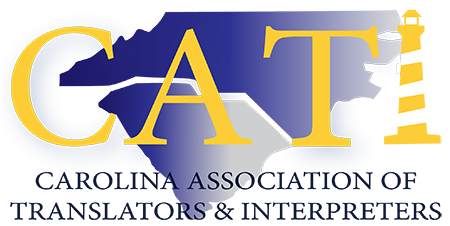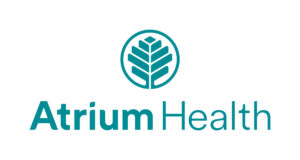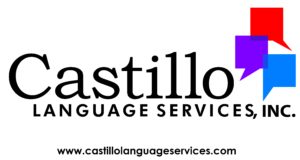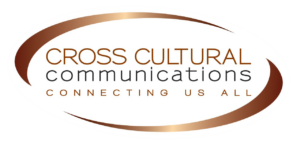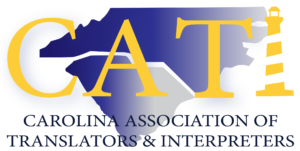
2020 Virtual Conference
“Working Globally, Networking Locally”
Saturday, November 14, 2020
Be sure to join us for a conference filled with great content and networking opportunity.
Irene Bruno will present our Keynote Address.
Our President will present our General Meeting.
Six options to choose from for the three sessions.
Two Chances to participate in Break Out Networking Sessions.
This conference will be hosted by Zoom.
The conference will kick off at 9:00am and end at 5:00pm with plenty of breaks to stretch your legs and get some nourishment.
ATA has approved CEU’s for all sessions and the keynote.
IMIA and CCHI CEU’s are pending.
Registration is open until Wednesday, November 11th, 2020.
CATI Members $65 / Students – $35 / Non-CATI Members $85
The Keynote Speaker will be Irene Bruno.
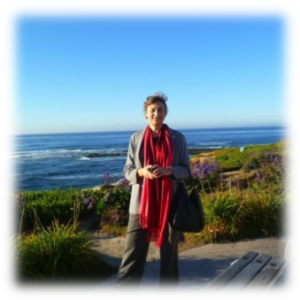
Keynote Speaker Bio:
Irene Bruno, Senior Diplomatic Spanish Interpreter at the U.S. Department of State, is originally from Buenos Aires, Argentina. After finishing high school there, she traveled as a foreign exchange student to Kansas City, MO where she attended Park Hill High School. During that experience she decided to become a translator and interpreter.
Upon receiving her B.A. in Translation from the University of Buenos Aires and her interpreting degree from Georgetown University in Washington, D.C. she began a +35-year career as a free-lance interpreter for the U.S. Government, international organizations such as the Organization of American States, the World Bank, the International Monetary Fund, the Inter-American Development Bank, as well as clients from the private sector.
In 2014 she joined the Office of Language Services at the U.S. Department of States, as Spanish Diplomatic Interpreter where she interprets for the White House, the Department of State and other Departments of the U.S. Government.
Keynote Speaker Topic:
Ms. Bruno will address the issue of diplomatic interpreting including interpreting when the President of the United States is visiting a foreign country or welcoming a foreign leader; when the Secretary of State is holding a bilateral meeting or a joint press conference with a Foreign Minister.
In addition to speaking about her job as Senior Spanish Diplomatic Interpreter at the Office of Language Services at the Department of State, she will also summarize the history of interpreting, including the Nuremberg trials; give examples of expressions, phrases and sayings that require preparation on the part of the interpreter so as not to be caught “off guard” while interpreting; and explain how to become a contractor, either as a translator or an interpreter. CEU’s – ATA
Conference Sponsors:
GOLD SPONSORS
SILVER SPONSOR
Interested in becoming a Conference Sponsor? CLICK HERE
CATI CONFERENCE SCHEDULE OF EVENTS
Saturday, November 14, 2020
| Time | Type | Description | 1 CEU Credit | |
|
Welcome/Call Sign In– Javier Castillo | |||
|
A,B,C, | Keynote Address by Irene Bruno | ATA | |
|
Coffee Break – Networking Breakout Session | |||
|
Concurrent Sessions I | |||
| B |
Best Practices for Translation in Educational Settings by Dr. Holly Silvestri
|
ATA,
IMIA |
||
| C | Maintaining a Career as a Language Professional: An Endless Journey by Gabriela Espinoza Siebach | ATA,
CCHI |
||
|
Lunch | |||
|
CATI General Meeting – Board of Directors | |||
|
Concurrent Sessions II | |||
| B |
Language Access in Schools: Ensuring Meaningful Communication with Non-English or Limited-English Speaking Parents- by Leslie Padilla-Williams
|
ATA,
IMIA |
||
| A,C |
Freelance Translators: You can Translate, but can You Freelance? by Robert Gebhardt
|
ATA |
|
Coffee Break – Networking Breakout Session |
|
||
| 4:00 – 5:00 | Concurrent Sessions III | |||
| B | Protocols and Tips for Video Interpreters in Healthcare by Beverly Treumann, CHI™, CMI and Anita Coelho Diabate | ATA,
CCHI, IMIA |
||
| B | Beyond Symbols: An Overview of How to Create Your Own Symbolic Language for Highly Effective Note-Taking by Margaret Wolfe-Roberts | ATA,
CCHI, IMIA |
A = Translation, B = Interpretation, C = Business Skills
Pending other CEU’s for IMIA and CCHI
Registration closes Wednesday, November 11 ,2020.
Continuing Education Sponsors:

ATA is a professional association founded to advance the translation and interpreting professions and foster the professional development of individual translators and interpreters. Its over 10,000 members in more than 103 countries include translators, interpreters, teachers, project managers, web and software developers, language company owners, hospitals, universities, and government agencies. http://atanet.org
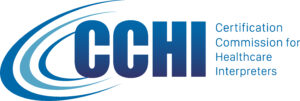
Certification Commission for Healthcare Interpreters, a 501(c)(6) organization founded in 2009, is governed by a volunteer board of 9-13 Commissioners. Our mission is to administer a national, valid, comprehensive, and inclusive certification program for healthcare interpreters. CCHI is the only national certification entity offering accredited certification programs for medical interpreters.
CCHI offers two national certifications: CoreCHI™, a language-neutral core professional knowledge certification, and CHI™, a language-specific performance certification, available in Arabic, Mandarin and Spanish. http://CCHIcertification.org
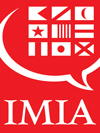
The International Medical Interpreters Association is a US-based international organization committed to the advancement of professional medical interpreters as the best practice to equitable language access to health care for linguistically diverse patients. Founded in 1986, with over 2,000 members, most providing interpreting services in over 70 languages, the IMIA is the oldest and largest medical interpreter association in the country. While representing medical interpreters as the experts in medical interpreting, membership to the IMIA is open to those interested in medical interpreting and language access. We currently have a division of providers, corporate members, and trainers. Policy makers, health care administrators, and others interested in medical interpreting are also welcome to join us as associate members. http://imiaweb.org
SESSION DETAILS
SESSION 1
1A – Best Practices for Translation in Educational Settings
Presented by Dr. Holly Silvestri (B)
Freelancers and school-based translators are frequently called upon to translate documents of an educational nature. The range of these documents is vast, as are the purposes for which they will be used. There is, however, little training available to those who would like to learn to do this properly. Additionally, there appear to be very few guidelines in the U.S. regarding the best practices for this specialization. This session is an attempt to start a conversation about this, as well as to bring forth a working document that can support the burgeoning professionalism of these translators.
Learning Objectives:
- The participant will be able to list the variety of texts translated in educational settings.
- The participant will be able to explain/distinguish between the skill sets required for a translator and an interpreter.
- The participant will be able to distinguish between translation of a transcript and credential evaluation.
- The participant will be able to list best practices for in-house translation.
- The participant will be able to list best practices for outsourced translation.
1B – Maintaining a Career as a Language Professional: An Endless Journey
Presented by Gabriela Espinoza Siebach (C)
The most recent crisis has made our need to grow and adapt ever more apparent. Whether you are new to the language industry or a seasoned interpreter or translator, maintaining a successful career as a language professional requires constant effort and adaptation. One of the most difficult challenges we face is the constant change that both plagues and improves our industry. In this presentation, participants will learn strategies to stay abreast of the changes in our industry and maintain a successful career as a professional interpreter or translator.
Learning Objectives:
- Describe three ways in which an interpreter or translator can maintain a successful professional career
- Apply a strategy to staying abreast of changes in the language industry
- Identify areas that may require effort to maintain or advance a professional career as an interpreter or translator
Not language specific.
SESSION 2
2A – Language Access in the Schools: Ensuring Meaningful Communication with Non-English or Limited-English Speaking Parents
Presented by Leslie Padilla-Williams (B)
The Department of Justice (DOJ) and the U.S. Department of Education (DOE) mandates that school districts and SEAs must ensure meaningful communication with non-English or limited-English speaking parents. So, how can school districts provide meaningful language access to parents? Join me as we go over important federal laws and guidelines that can assist school districts in complying with this mandate. Participants will learn how to identify LEP parents, which staff is competent to provide interpretation and translation services, and how meaningful communication is a team effort. Participants will receive resources to guide their school districts journey towards providing meaningful communication to LEP parents.
Learning Objectives:
- Express the main points of Title VI of the Civil Rights Act of 1964
- Succinctly describe what communications require translation
- Describe the bilingual proficiency skills required to provide meaningful communications to LEP and NEP parents
- Identify the steps school districts must take to provide effective language assistance to LEP parents
Not language specific.
2B – Freelance Translators: You can Translate, but can You Freelance?
Presented by Robert Gebhardt (AC)
In-house translation was already on the decline, but now it seems like COVID-19 has sounded the death knell for translators within the offices of agencies.
What does this mean for translators? There is now an emphasis on the “Freelance” part of “Freelance Translation”, and, despite its growth in recent years, this has rarely been addressed.
How can translators shift to this new way of finding clients, gaining their trust, keeping them happy, concluding satisfactory work, and making sure the clients themselves are trustworthy, not to mention handle issues like payments, managing all their projects online, etc.?
Learning Objectives:
- Changes in Resumes (+ online profiles) when working online
- Changes in Networking when working online
- How to find the Right Clients when working online
Not language specific.
SESSION 3
3A – Protocols and Tips for Video Remote Interpreters in Healthcare
Presented by Beverly Treumann, CHI™, CMI and Anita Coelho Diabate (B)
The goal of this session is to review interpreting protocols that have been adapted from in-person settings to working remotely, including what interpreters do at the beginning, during, and at the close of an encounter and to consider and propose better practices for supporting communication between patients and providers. Presenters will discuss ways interpreters working remotely can manage difficulties that are common to any healthcare setting such as what to do when a provider leaves the room or what to do when a provider tells the interpreter not to interpret.
Learning Objectives:
- Name one new tip for how to use online resources during a provider-patient encounter to produce a more accurate interpretation of what is being said;
- Evaluate updated protocols, recommendations and tips for beginning, managing, and closing a session;
- Explain ways interpreters working remotely can manage difficulties that are common to any healthcare setting such as what to do when a provider leaves the room, what to do when a patient repeatedly speaks over the interpreter’s voice or what to do when a provider tells the interpreter not to interpret because the provider plans to speak in the patient’s language to the patient.
Not Language Specific.
3B – Beyond Symbols: An Overview of How to Create Your Own Symbolic Language for Highly Effective Note-Taking
Presented by Margaret Wolfe-Roberts (B)
An effective note-taking system means your brain can relax as your speakers go on and on, knowing that your notes will step you through it all with confidence when the time comes.
We will take a quick dip into the topic and look at why you need a language not a code, then go over the basic steps: how to come up with an effective pictorial alphabet, how to build your lexicon, design standards and quality control, how much grammar do you need, how to get good at using your note-taking language and how to make your project sustainable.
Learning Objectives:
- Participants will be able to name at least two cognition-based reasons why using concept symbols based on visual imagery gets superior results over words and abbreviations for taking notes in consecutive mode.
- And at least one way that a language structure for our symbols presents advantages over a simple code.
- Given several examples to choose from, participants will be able to point to a properly structured alphabet symbol, according to the three design standards of logic, speed and fit.
- Participants will be able to verbally break a target concept into its component ideas and, given several examples to choose from, point to a combination of pre-established alphabet shapes that meets the same three design criteria for a new picto-symbol.
- My overall hope is that participants come away inspired and confident enough to begin “playing” on their own picto-symbolic language for note-taking, having learned the right tools and approach to get them started from someone who’s already done it.
Due to the kind and amount of visual content in this presentation, participants are strongly encouraged to choose a larger viewing screen. Please have several sheets of blank paper and a writing utensil on hand.
Relevant for all working languages.
ABOUT THE SPEAKERS
(in alphabetical order by first name)
Anita Coelho Diabate
Anita Coelho Diabate is a Medical and Mental Health interpreter in Portuguese with the Cambridge Health Alliance where she also serves as Wellness Ambassador for her department. She holds post-secondary certificates in both Medical and Mental Health interpreting from Cambridge College. She served on the Board of Directors of the International Medical Interpreters Association as Vice-President and President-Elect and remains active in the advancement of the careers of professional medical interpreters.
Beverly Treumann
Ms. Beverly Treumann, CHITM, CMI, earned a State of California Certification in Medical Interpreting (English/Spanish) in 1997. Ms. Treumann worked ten years as a medical interpreter in both small clinics and large teaching medical centers and four years for a large public health plan teaching a 40-hour course on healthcare interpreting at many different hospitals in Los Angeles County. In her position with HCIN, Ms. Treumann writes for HCIN Learn, a web-based training website; coordinates and documents training, testing, and continuing education for interpreters; and serves as a resource to the language access programs at HCIN’s member health care systems.
Gabriela Espinoza Siebach
A Certified Healthcare Interpreter, Gabriela Siebach has accumulated more than 10 years of professional experience, and has spearheaded the development of multiple training, mentorship, and assessment programs. She holds a graduate degree from the world renown Middlebury Institute of International Studies at Monterey. She currently serves on the National Council on Interpreting in Health Care Board and Chairs the Policy, Education & Research Committee, and is an active member of the Interpreting and Translation in Education Workgroup Job Task Analysis and Code of Ethics & Standards of Practice Committees. She works as a Spanish interpreter, translator, trainer, and Language Access consultant.
Dr. Holly Silvestri
Dr. Holly Silvestri is the Senior Director of Translation, Training, and Curriculum at the National Center for Interpretation at the University of Arizona. She has been an educational interpreter for over 10 years and is also the chief executive officer of Linguistic Connections, LLC. She has taught in the degree program for Spanish translation and interpreting at the University of Arizona. She is one of the co-founders of ITE workgroup, an attempt at professionalizing this important specialization of community interpreting. Currently, she is working on a book with other co-authors that is designed as an advanced training textbook and workbook for interpreters in school settings. Her working languages are Spanish and French. https://www.iteworkgroup.org/
Irene Bruno
Irene Bruno, Senior Diplomatic Spanish Interpreter at the U.S. Department of State, is originally from Buenos Aires, Argentina. After finishing high school there, she traveled as a foreign exchange student to Kansas City, MO where she attended Park Hill High School. During that experience, she decided to become a translator and interpreter. Upon receiving her B.A. in Translation from the University of Buenos Aires and her interpreting degree from Georgetown University in Washington, D.C. she began a +35-year career as a free-lance interpreter for the U.S. Government, international organizations such as the Organization of American States, the World Bank, the International Monetary Fund, the Inter-American Development Bank, as well as clients from the private sector.
In 2014 she joined the Office of Language Services at the U.S. Department of States, as Spanish Diplomatic Interpreter where she interprets for the White House, the Department of State and other Departments of the U.S. Government.
Leslie Padilla-Williams
Leslie Padilla-Williams has dedicated her professional career to interpreting and translating in K-12 Educational settings. She shares her vast experience as a district translator for over two decades through her company, HOLA Language Services, where she has provided language-specific interpreting training to thousands of bilingual school staff members.
Her unique educational background that includes a Law Degree in Guatemala City, a CA Adult Education Credential, and a Translation Certificate from UCSD Extension has contributed to her ability to provide relevant, in-the-trenches interpreting workshops. She was distinguished as Teacher of the Year by Latino Champions, as well as Outstanding Latina Entrepreneur by Latina Magazine/Wells Fargo, and is a recommended bilingual resource by the California Department of Education.
Margaret Wolfe-Roberts
Margaret is a Harvard graduate and North Carolina Master certified Spanish interpreter with twenty years of experience. She’s been working on her own note-taking symbology over the past twelve years, having gotten thoroughly tired of the humiliation and stress of forgetting what people say, when they have a lot to say. The results have been gratifying, and you can do it too.
Robert Gebhardt
Don’t miss out.
